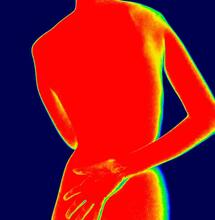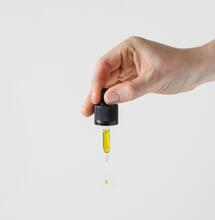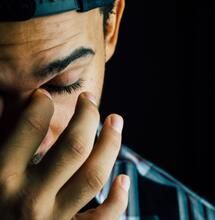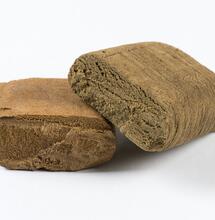Cure for "cannabis use disorder" Shows Promise in Study

Known as AEF0117, the drug was discovered to decrease the perceived positive impacts of cannabis, including the 'high' feeling, by up to 38 per cent in a study by researchers at Columbia University.
Thirty-five million Americans were documented as using cannabis in some form last year. Doctors have seen a rise in cases of a rare but fatal condition linked to significant cannabis use, which causes extreme vomiting, dehydration and stomach pain.
Lead author of the study Meg Haney, and director of the cannabis research laboratory at Columbia University, said the primary findings on the treatment were 'very promising'.
Currently, no drugs are available to treat cannabis use disorder, which is thought to affect as many as 30 per cent of weed users. Cannabis use disorder is described as a condition where people cannot stop using it even though it may be causing health and social problems and their work and relationships.
One study estimated that cannabis users have a 10% chance of becoming addicted. The probability of developing cannabis use disorder is higher in those who began using it in their youth.
The drug was given to 29 adults with cannabis use disorder, who were smoking, an average of around three grams of weed per day, six days a week. Those participating in the study were given either a low or high dose of AEF0117. They were given either the drug or a placebo for five days. Participants were given the pill at 9 am each morning and smoked cannabis 3.5 hours later.
Researchers discovered that the lower dose reduced the emotional effects of cannabis by 19 per cent. The higher amount 'significantly' reduced the impact of the cannabis by 38 per cent compared to the placebo.
'These data suggest that AEF0117 is a safe and potentially efficacious treatment for CUD.'
The higher dose decreased the amount of cannabis the study participants used later in the day. The drug was also found to cause no severe side effects or withdrawal symptoms.
The pill is a compound emanating from pregnenolone. The adrenal gland above the kidneys naturally creates this hormone. AEF0117 acts in the exact parts of the brain as THC. It appears to counteract the 'high' by inhibiting the CB1 receptors that are accountable for the addictive influences of cannabis.
The findings need to be replicated in more expansive trials that enrol 300 US participants, with the results due as early as next year. Several studies have also discovered associations between cannabis and mental health issues like depression and schizophrenia. However, the precise cause is not clear.
Cannabis can cause psychosis, damaging how you think, make decisions, control emotions, and deal with reality. It can also impede brain development in young people. However, it may be that individuals who have schizophrenia use cannabis to relieve their symptoms.











